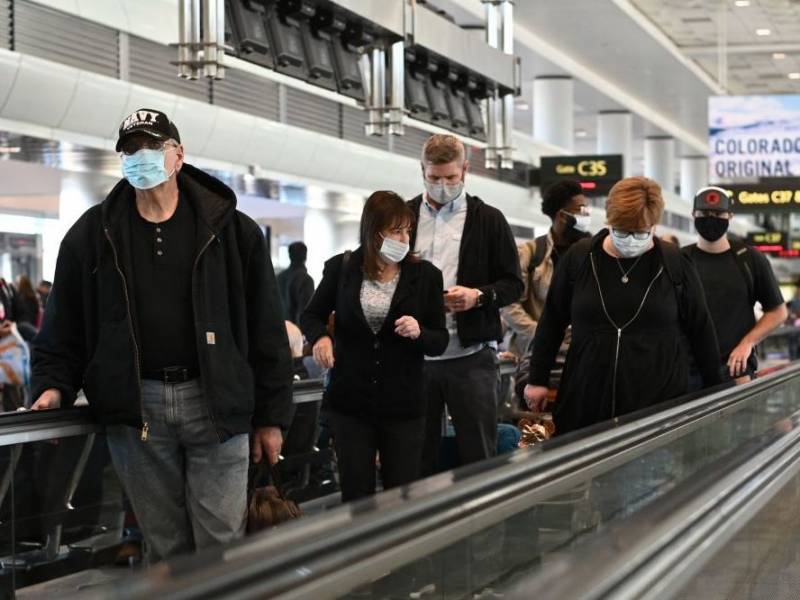The decision was made in response to the increasing spread of the omicron subvariant in the U.S. and an increase in the 7-day moving average of cases, which has risen by around 25% over the last two weeks nationally. Certain states are seeing much larger increases in new cases.
The CDC is following the science with this latest decision, says James Hodge, who directs the Center for Public Health Law and Policy at Arizona State University.
"I believe that a two-week period is just enough to say we're watching very carefully," he says. "If we pull this mask mandate, we will have extended numbers of infections — that's not responsible and that's counter to the public's health."
However, there has been growing pressure on the Biden administration to lift the mask rule.
In a letter to Biden last month, the industry group Airlines for America argued that it was no longer necessary to keep the order in place. Florida's Republican Gov. Ron DeSantis has also recently announced he's leading a multi-state lawsuit against the requirement to wear masks on public transit.
While there are many supporters of the mask requirement, some infectious disease experts say it's time for the U.S. to lift the mandate because cases are much lower than they have been in a long time.
In fact, the CDC's own metrics show that about 95% of the country is currently designated as having "low" community levels of COVID-19, says Dr. Monica Gandhi, an infectious disease specialist at UCSF.
"It's really not consistent to have a mask mandate on a plane or a bus versus the whole community," says Gandhi.
She notes that activities like indoor dining tend to be more risky than flying on planes, which have very good ventilation. "So I think the inconsistency can be perceived as problematic."
Copyright 2022 NPR. To see more, visit https://www.npr.org.
9(MDAxOTAwOTE4MDEyMTkxMDAzNjczZDljZA004))

9(MDAxOTAwOTE4MDEyMTkxMDAzNjczZDljZA004))